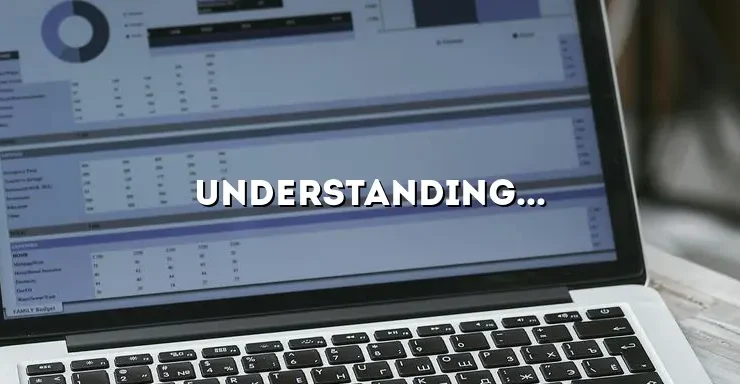
As a flooring installer, your business faces unique risks and challenges every day. From accidents and injuries on the job site to damage or theft of equipment and materials, it is crucial to have the right protection in place. This is where flooring installers insurance comes into play. In this comprehensive guide, we will explore the importance of flooring installers insurance, the different types of coverage available, and how it can safeguard your business from financial ruin.
The Importance of Flooring Installers Insurance
Running a flooring installation business involves various risks that can have devastating financial consequences if not adequately managed. Having flooring installers insurance is essential to protect your business, employees, and clients from these risks. Without the right coverage, a single accident or lawsuit can lead to substantial financial losses and even jeopardize the future of your business.
Protection Against Accidents and Injuries
Working as a flooring installer involves physical labor and working in potentially hazardous environments. Accidents and injuries can occur, both to your employees and third parties. These accidents can result in costly medical bills, lost wages, and potential lawsuits. Having flooring installers insurance provides coverage for medical expenses and protects your business from liability in case of accidents or injuries on the job site.
Safeguarding Against Property Damage
During flooring installations, there is always a risk of damaging the property where you work. Whether it’s scratching a customer’s hardwood floor or accidentally breaking a valuable item, these damages can lead to expensive repairs or replacements. Flooring installers insurance can help cover the costs of property damage, ensuring that your business doesn’t bear the full financial burden.
Protection from Lawsuits
Even with the utmost care and professionalism, mistakes and misunderstandings can happen. Unsatisfied customers may file lawsuits, claiming negligence, errors, or omissions in your work. These legal disputes can be costly and time-consuming, potentially bankrupting your business. Flooring installers insurance includes professional liability coverage, also known as errors and omissions insurance, which protects you from the financial consequences of such lawsuits.
Types of Flooring Installers Insurance
Now that we understand the importance of flooring installers insurance, let’s explore the different types of coverage available to protect your business.
General Liability Insurance for Flooring Installers
General liability insurance is the foundation of any comprehensive insurance plan for flooring installers. It provides coverage for bodily injury, property damage, and personal injury claims. This insurance protects your business from potential lawsuits and covers legal expenses, including attorney fees, court costs, and settlements or judgments. General liability insurance is essential for any flooring installer, as it provides a safety net against unforeseen accidents and liabilities.
Workers’ Compensation Insurance for Flooring Installers
As a flooring installer, your employees face inherent risks on the job. Workers’ compensation insurance provides coverage for medical expenses, lost wages, and disability benefits in the event of work-related injuries or illnesses. In addition to being a legal requirement in many jurisdictions, workers’ compensation insurance offers financial protection for your employees and shields your business from potential lawsuits related to workplace injuries.
Commercial Auto Insurance for Flooring Installers
If your flooring installation business relies on vehicles to transport equipment and materials, commercial auto insurance is crucial. This insurance provides coverage for accidents, property damage, theft, and other incidents involving your business vehicles. Whether you own a single work van or a fleet of trucks, commercial auto insurance protects your assets and ensures that your business can continue operating smoothly in the event of an accident or vehicle-related damage.
Tools and Equipment Insurance for Flooring Installers
As a flooring installer, your tools and equipment are essential to your livelihood. Protecting them against damage, loss, or theft is crucial. Tools and equipment insurance provides coverage for the repair or replacement costs of your valuable tools in the event of accidents, theft, or damage. This insurance ensures that your business can quickly recover and resume operations without the financial burden of replacing expensive tools and equipment.
Professional Liability Insurance for Flooring Installers
Even the most skilled flooring installers can make mistakes or encounter dissatisfied clients. Professional liability insurance, also known as errors and omissions insurance, provides coverage for claims of negligence, errors, or omissions in your work. It protects your business reputation and finances by covering legal expenses, settlements, or judgments related to professional liability claims. Professional liability insurance is especially important for flooring installers, as it safeguards against potential lawsuits that may arise from dissatisfied customers or misunderstandings.
Choosing the Right Flooring Installers Insurance Policy
Now that you understand the different types of insurance coverage available for flooring installers, it’s important to select the right policy for your specific needs. Here are some key considerations to help you make an informed decision:
Assess Your Business Needs
Start by assessing the unique risks and requirements of your flooring installation business. Consider the size of your company, the number of employees, the type of projects you undertake, and the value of your tools and equipment. Understanding your specific needs will help you determine the types and amounts of coverage necessary to adequately protect your business.
Compare Quotes from Multiple Insurance Providers
Obtain quotes from several insurance providers that specialize in flooring installers insurance. Compare the coverage options, policy limits, deductibles, and premiums offered by each provider. Take the time to carefully review the terms and conditions of each policy to ensure they align with your business needs and offer comprehensive protection.
Evaluate Coverage Limits and Exclusions
Pay close attention to the coverage limits and exclusions of each policy. Ensure that the policy limits are sufficient to cover potential losses and liabilities that your business may face. Additionally, review the exclusions to understand what is not covered by the policy. Be aware of any specific conditions or requirements that may affect your coverage.
Consider the Reputation and Financial Stability of the Insurance Provider
Choose an insurance provider with a solid reputation and a strong financial standing. Research the provider’s history, customer reviews, and financial stability ratings. It’s important to select an insurance company that you can trust to fulfill their obligations and provide support in the event of a claim.
Seek Professional Advice if Needed
If you’re unsure about the complexities of insurance policies or need assistance in choosing the right coverage, consider seeking advice from an insurance professional or broker specializing in commercial insurance. They can help you navigate through the options, explain the fine print, and ensure that you make an informed decision.
By carefully considering these factors and selecting the right insurance policy, you can protect your flooring installation business from unforeseen events and safeguard its long-term success.






